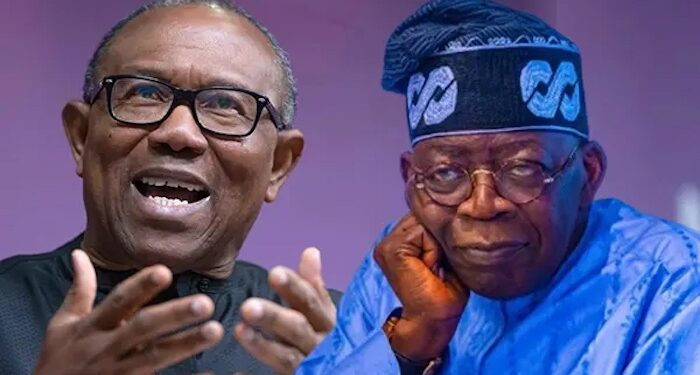The Labour Party’s presidential candidate in Nigeria’s 2023 election, Peter Obi, has faced sharp criticism from the All Progressives Congress (APC) following his recent statements about Nigeria’s economic condition.
In response to Obi’s remarks, the APC described his comments as a mix of “half-truths, blatant distortions, and misinformation,” aimed at inciting public outrage against the party and the government of President Bola Ahmed Tinubu. The APC argued that expecting President Tinubu to achieve a complete transformation of Nigeria in one year, which Obi allegedly failed to do in eight years as Governor of Anambra State, is hypocritical.
Obi had asserted that the APC-led administration over the past nine years was responsible for Nigeria’s economic crisis and criticized the current government for not adequately addressing poverty and unemployment. However, the APC, through its National Publicity Secretary Felix Morka, rebutted these claims, calling Obi’s comments “mischievous, highly revisionist, dishonest, distorted, and deliberately misleading.”
The APC highlighted several external factors contributing to Nigeria’s economic challenges, such as the global oil price crash, geopolitical tensions, climate change, the COVID-19 pandemic, and rising population. They argued that the economic decline began under the Peoples Democratic Party (PDP) with GDP growth falling from 7.98% in 2010 to 2.79% in 2015. Additionally, the APC noted that during the PDP years, Nigeria earned $531.2 billion, compared to $287.8 billion under the APC from 2015 to 2022.
The APC defended its administration’s efforts to address structural economic issues, claiming that the PDP neglected these underlying problems, making Nigeria vulnerable to economic shocks. They highlighted President Tinubu’s policies focused on economic reform, diversification, infrastructure development, social welfare, and agricultural revolution as crucial steps towards Nigeria’s economic resurgence.
Contrary to Obi’s “gloomy analysis,” the APC pointed to significant positive economic indicators, such as a $20 billion capital influx, a N6.52 trillion trade surplus in Q1 2024, rising foreign reserves to over $34 billion, and a 66.27% increase in capital inflow. They also noted the Nigerian Stock Exchange’s All Share Index crossing the 100,000 benchmark and a projected 3.1% GDP growth for 2024 by the International Monetary Fund (IMF).
The APC accused Obi of being a “loquacious and disruptive back seat driver” who seeks to incite public anger through false narratives. They called for a collective and patriotic approach to tackle Nigeria’s economic challenges rather than inflaming passions with manipulative statements.


